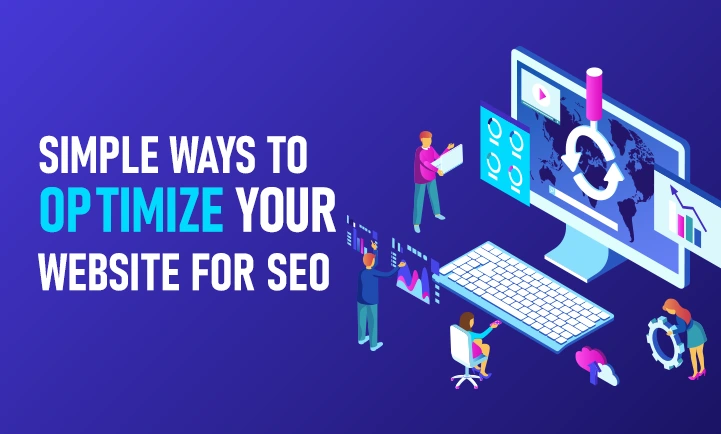
Optimizing your website for SEO is crucial for improving your search engine rankings, driving traffic, and enhancing user experience.
At Kaseo Web, we specialize in website SEO optimization and offer expert services to help you achieve your goals. Here are some simple yet effective ways to optimize websites for SEO.
1. Keyword Research and Usage
Using tools like Google Keyword Planner, Ahrefs, or SEMrush, identify the most relevant keywords for your content. Focus on keywords that your target audience is likely to search for.
Incorporate these keywords into your titles, headings, meta descriptions, and throughout your content. Ensure that the keywords fit naturally into the text to avoid keyword stuffing, which can negatively impact your SEO.
2. Quality Content Creation
Creating high-quality, informative, and engaging content is essential for website SEO optimization. Your content should address the needs and interests of your audience, providing them with valuable information.
Update Content Regularly: Regularly updating your content ensures that it remains relevant and useful. Fresh content can help improve your website’s SEO by attracting more visitors and encouraging them to stay longer.
3. On-Page Optimization
- Title Tags: Each page should have a unique and descriptive title tag that includes your primary keyword. Title tags are a critical factor in SEO optimization of your website.
- Meta Descriptions: Write compelling meta descriptions that include your primary keyword and encourage users to click on your link. A well-crafted meta description can significantly improve your website’s SEO optimization.
- Header Tags (H1, H2, H3, etc.): Use header tags to structure your content and include relevant keywords. Proper use of header tags can improve website SEO by making your content easier for search engines to understand.
4. Improve Page Loading Speed
- Optimize Images: Compress images to reduce load times without sacrificing quality. Faster load times improve website SEO by enhancing user experience.
- Minimize HTTP Requests: Reduce the number of elements on your page to decrease load time. Fewer HTTP requests mean faster load times, which can improve your website SEO optimization.
- Use a Content Delivery Network (CDN): Distribute your content across multiple servers to improve load times. A CDN can help deliver your content quickly to users around the world.
5. Mobile Optimization
Responsive Design: Ensure your website is mobile-friendly and adjusts to different screen sizes. Mobile optimization is crucial for improving website SEO, as more users access the web via mobile devices.
Mobile Usability: Test your site on various devices to ensure it’s easy to navigate on smaller screens. A mobile-friendly website design enhances user experience and improves SEO.
6. Internal Linking
Use internal links to guide visitors to related content on your site. This improves navigation and helps search engines understand the structure of your site.
Anchor Text: Use descriptive anchor text for your internal links that include relevant keywords. Proper use of anchor text can improve your optimization of your SEO website.
7. External Linking
Earn backlinks from reputable websites to increase your site’s authority. Quality backlinks are a key factor in improving website SEO.
Guest Blogging: Write guest posts for other blogs in your industry to gain backlinks and exposure. Guest blogging can help you build relationships and improve your website’s SEO.
8. Technical SEO
XML Sitemap: Create and submit an XML sitemap to search engines to help them index your site. An XML sitemap is essential for SEO optimization of the website.
Robots.txt File: Use a robots.txt file to guide search engine crawlers on which pages to index. Proper use of the robots.txt file can improve your website SEO.
Fix Broken Links: Regularly check and fix any broken links on your site. Broken links can negatively impact user experience and rankings and SEO.
9. User Experience (UX)
Ensure your website is easy to navigate with a clear menu structure. Good navigation improves user experience and can enhance website SEO.
Use a clean, visually appealing layout that encourages users to stay on your site longer. An engaging layout can help improve your website’s SEO by reducing bounce rates.
10. Analytics and Monitoring
Track your website’s performance and user behavior to make informed decisions. Google Analytics is a valuable tool for website SEO optimization.
Use Google Search Console to monitor and maintain your site’s presence in search results. Regular monitoring can help you identify and fix issues that affect your website SEO.
Why Choose Kaseo Web for SEO Optimization?
At Kaseo Web, we understand the complexities of website SEO optimization and offer tailored solutions to help you achieve your goals. Our team of SEO experts uses the latest strategies and tools to improve your website’s SEO, driving traffic and enhancing user experience. Here’s why you should choose Kaseo Web:
- Experienced Professionals: Our team has extensive experience in SEO and digital marketing.
- Customized Solutions: We provide personalized SEO strategies based on your unique needs and goals.
- Proven Results: We have a track record of delivering successful SEO campaigns for our clients.
Wrap Up
Implementing these simple strategies can significantly improve your website’s SEO optimization, enhance your search engine rankings, and attract more visitors. Regularly reviewing and updating your SEO tactics will ensure long-term success and continued growth.
If you need professional assistance to boost your website, Our experts are always ready to help. Contact us today to learn more!





